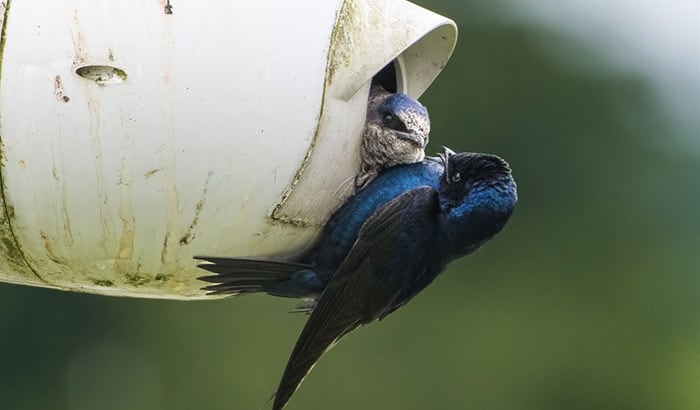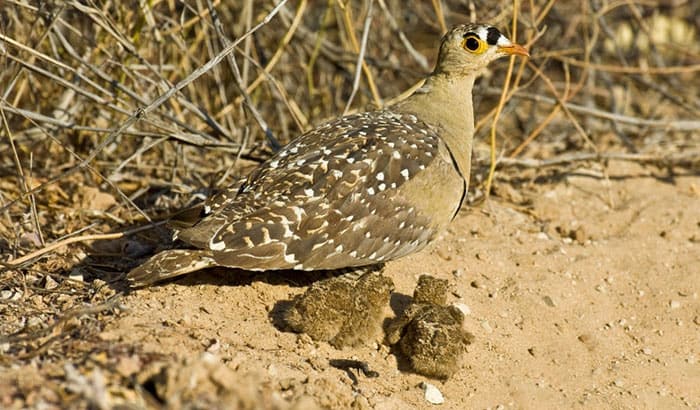Why Do Birds Only Allow Their Mothers to Feed Their Babies

After the eggs hatch, do birds move their babies to a new nest?
We're not talking about birds that fly away from predators; we're talking about birds that move their babies to new nesting sites. In that case, it turns out that the answer is no; birds don't move their babies.
Still, birds have to move their babies to a new home under necessary circumstances. You can find out the reasons for such behavior below.
Can Birds Pick Up and Move Their Babies?
Birds can't actually carry their eggs and chicks while flying. They would have to make many trips back and forth between the nest and a new location for this to be possible.
Babies' birds are adorable, but they're also a little bit dumb. They can't walk or fry until they're a few weeks old, and if they fall out of their nest, they usually don't make it.
For this reason, birds don't move their babies; birds will wait until their young ones are able to take care of themselves before transferring them to a new location.
When do Birds Move Their Babies out of the Nest?
Birds move their babies out of the nest to protect them. It usually happens when birds nest on cliff ledges, where predators like hawks can see their nests and swoop down on them easily.
The parents will first make a lot of noise by flapping around near the nest to distract these birds from coming after it or their young ones. Once they know that there is no danger for themselves, then they fly away into safer areas.
Then, they turn back later with food for their offspring until they have grown big enough to take care of themselves.
Other Frequently Asked Questions

Can I Move a Bird Nest with Hatchlings?
There's no definitive answer to this question as every bird nest is different. Some birds, like the American robin, will build their nests close to the ground to avoid being disturbed. Other birds, like the osprey, will make their nests high up in trees so that they are safe from predators.
If you decide to move a bird nest with hatchlings, it's important to be very careful. You should try and relocate the nest as close to its original location as possible. Also, make sure that you don't disturb the babies any more than necessary.
It's also important to remember that birds can be very protective of their young, so it's best not to approach a bird's nest if you can avoid it.
Why do Birds Throw their Babies out of the Nest?
One of the most puzzling things about birds is why they sometimes throw their babies out of the nest. It's a behavior that seems to go against everything we know about parenting, but it has a purpose.
If one chicken has an illness, the parents will push them out of the nest to stop the infection from spreading.
The parents may also evict their chicks if they are not getting enough food or too much competition for resources in the nest. By throwing their babies out of the nest, birds can help ensure that their chicks have a better chance of surviving.
Birds also move their young around to teach them how to fly and hunt. By throwing them out of the nest, the birds are forcing the babies to learn how to survive on their own. If they can't figure it out, then they're not going to make it very far in life.
So next time you see a bird tossing its baby around, don't be too quick to judge – remember that it's all part of nature's plan!
When do Young Birds Leave the Nest?
Babies' birds typically start moving away from the nest around two or three weeks old. They may stay in the general area for a while. Still, eventually, they will have to find their own territory and food sources.
They start to go out and explore their surroundings. They might move around the house, seeing if they can climb on your furniture or peek into cabinets where you keep food and dishes. This could be dangerous since birds are small enough that children may try feeding them without knowing about the dangers of birds.
Sometimes, the birds' parents watch their babies leave. They even continue to feed the baby birds while they are on their own in the world for about two weeks or so.
Being away from parents is an important step in their development; it is something we, humans, can relate to. With luck and adaptation ability, they will learn how to take care of themselves and mature.
Conclusion
Birds are fascinating creatures. We don't understand many of this species' behaviors. We've looked at a representative sample of birds' parenting behavior in this article. Still, there may be as much variation among species as between individual human parents. It will take years more research to answer all the questions about how birds care for their young!
You can find more tips on our blog; please contact us if you have any questions or comments.
Source: https://birdingdepot.com/do-birds-move-their-babies/
0 Response to "Why Do Birds Only Allow Their Mothers to Feed Their Babies"
Post a Comment